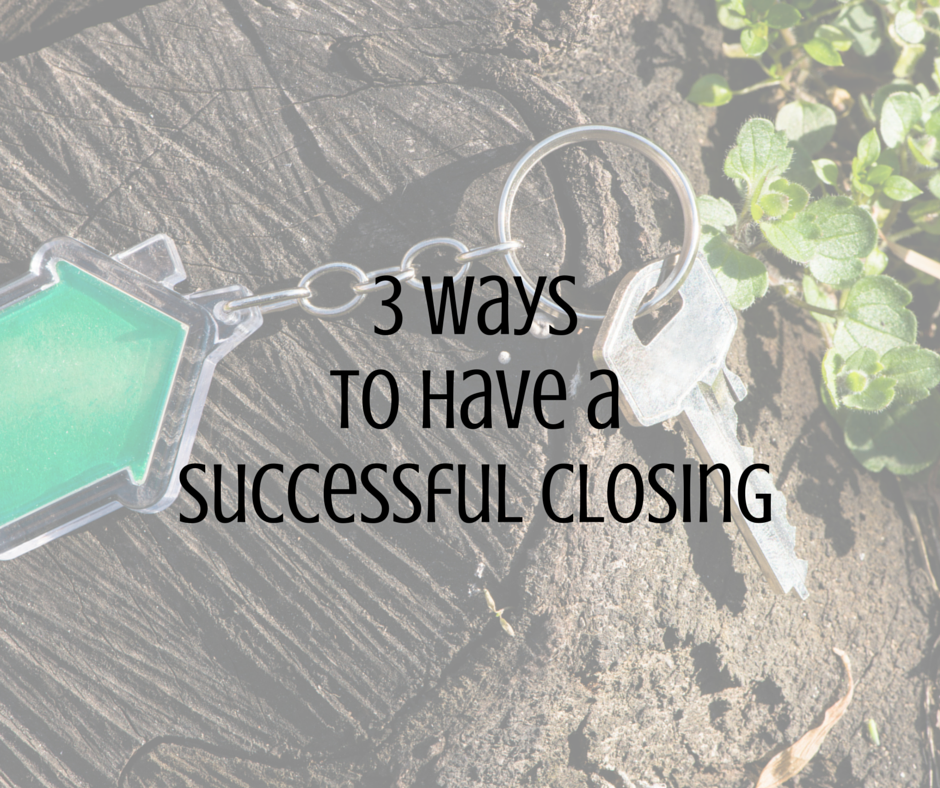The process of buying a home can be a marathon or sometimes a sprint, but it isn’t finished until your keys are in your hand. There are stacks of papers to sign and sometimes it’s hard to stay on top of everything. But knowing what to expect while you are closing on a new home can be a big relief and help you get across the finish line.
1. Understand and Prepare for the Process
Though you’ll have people to guide you through the closing, it’s important to understand the process yourself.
The closing is a process where both the buyer and seller sign legal documents that transfer the ownership of the property from the seller to the buyer. This takes place at a title company, but is occasionally completed at an attorney’s office, depending on the circumstances. At an average closing, you will review and sign all of your loan documents, as well as provide proof of the required homeowner’s insurance. You will also submit your down payment funds (if applicable).
At closing, you likely will be paying closing costs as well as some escrow items. Your real estate agent, lender or title company will prepare you before the closing regarding any fees, and the amount you are expected to pay at closing.
Your real estate agent will be in contact with the title company to set a time and date for closing. You should also expect instructions on what you need to bring to your closing, which includes your photo identification, usually a driver’s license, along with the funds you will pay, proof of insurance and other miscellaneous items.
2. Review Everything
Regardless if you’ve prepared extensively for your closing or are checking on things last minute, be sure to ask as many questions as you need to understand the process. Knowing what to expect and understanding what every party does in the process is very helpful in completing your successful closing.
The Documents You Will Sign
At your closing you will be signing two sets of documents, which are comprised of the agreement between you and lender for your mortgage, and the agreement between you and the seller.
Here is a typical list of documents you can expect to see and sign at your closing:
- HUD-1 Settlement Statement
- Final Truth-In-Lending Act Statement
- Good Faith Estimate copy
- Certificate of Occupancy
- Mortgage Note
- Lender Disclosure Form
- Mortgage or Deed of Trust
After you and the seller have signed all of the closing documents, the lender reviews to make sure all is in order and then gives the closing agent final approval to fund the loan. Then you get your keys and are officially the owner of your new home.
The title company should make you a complete copy of all the closing documents you signed, as well as any warranties, the appraisal, and survey. Keep all these important documents in a safe place.
Make sure you are aware of when your first mortgage payment is due and to whom it should be paid. This information should be in your closing documents as well, but sometimes can be overlooked in the excitement of closing on your home.
3. Expect the Unexpected
The ideal closing can be done in as little as 30 minutes, but closing isn’t complete until the keys are in your hands. You should allow plenty of time on the day of closing for everything to be completed. Sometimes even a simple typo can hold up a closing, so expect the unexpected.
Your closing doesn’t have to be difficult, but I can help you prepare for it. If you are in the Garland, Rowlett, Rockwall, or Wylie areas and are looking to buy a home, I can help. Please call me at 214-642-1375 or contact me here, and I will be glad to guide you on your journey.
